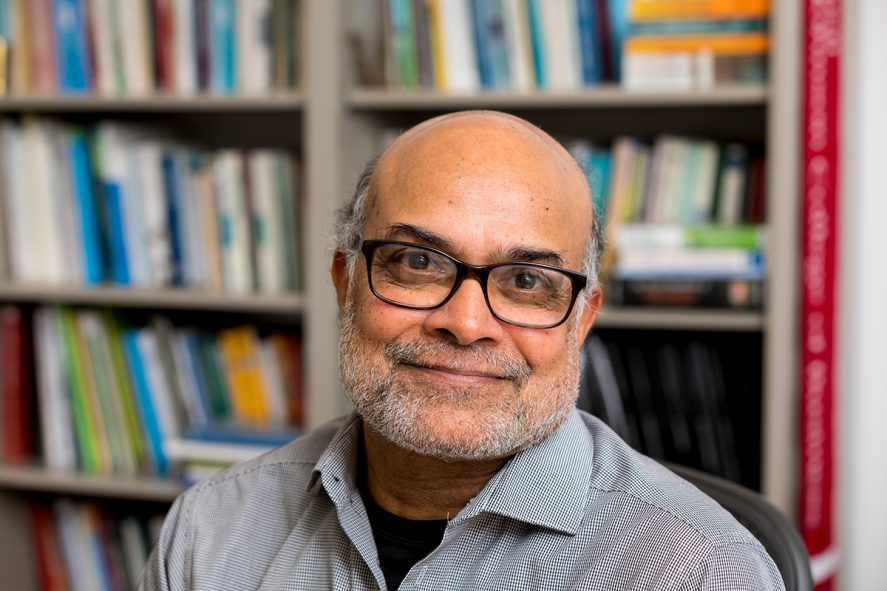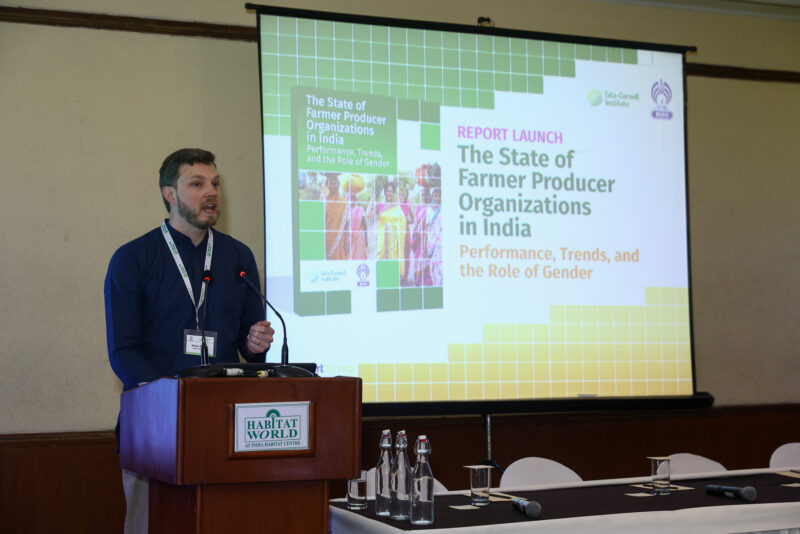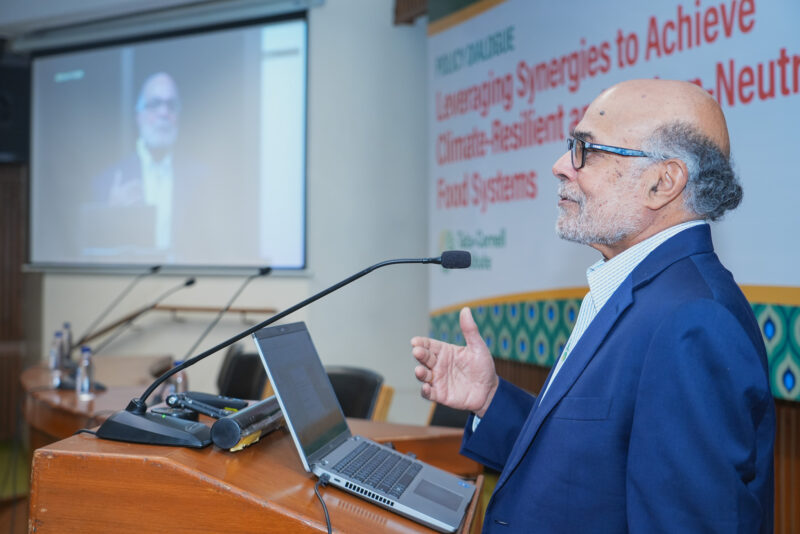TCI Director Prioritizes Resilient Food Systems in Crawford Fund Keynote

COVID-19 has shown countries around the world that they must work to make their food systems resilient against biosecurity risks, Tata-Cornell Institute for Agriculture and Nutrition (TCI) Director Prabhu Pingali told attendees at the Crawford Fund’s annual conference on December 14. Pingali delivered the morning keynote address at the conference, which focuses on agricultural development and food security.
“The rapid global spread of zoonotic diseases has become a major human health concern and a disruptor of food systems and rural livelihoods,” Pingali said in his speech. “COVID-19 has focused global attention on the nexus between food, health, and environment, as well as the need for promoting One Health policies and practices.”
While noting that in many countries, such as in Australia, food systems have experienced little disruption from COVID-19, Pingali said that the pandemic has nevertheless shown that global health systems are not robust enough to handle shocks from disease outbreaks that arise from food systems. He named transboundary agricultural pest infestations and disease outbreaks, triggered by the intensification and homogenization of agricultural production systems, as the “preeminent global biosecurity risks over the past half-century.”
“COVID-19 has focused global attention on the nexus between food, health, and environment, as well as the need for promoting One Health policies and practices.”
Pingali emphasized the multisectoral scope of such threats, stressing the importance of cross-sectoral collaboration across agriculture, trade, environment, and human health to manage risks and minimize trade-offs.
“There is an urgent need to build food system resilience against biosecurity risks,” he said. “Advances in genetic technologies for diagnostics and surveillance, in combination with supply chain traceability and AI and machine learning, could reduce biosecurity risks through early detection and control.”
Apart from the threat posed by diseases like COVID-19, Pingali alerted attendees to the costs associated with the spread of agricultural pests and plant diseases, noting that the FAO estimates that plant diseases and insects cost the global economy nearly $300 billion each year. “The associated risks of hunger and food insecurity are borne disproportionately by the poor and marginalized populations across the developing world,” he said.
Pingali observed that climate change is exacerbating biosecurity threats, especially the spread of insects and other pests. While those in more temperate climates may expect their agricultural yields to increase due to the warming climate, Pingali warned that those benefits will be tempered by the increased risk of crop losses due to pest infestations.
An initiative of the Australian Academy of Technological Sciences and Engineering, the Crawford Fund seeks to increase Australia’s engagement in international agricultural research and development.





